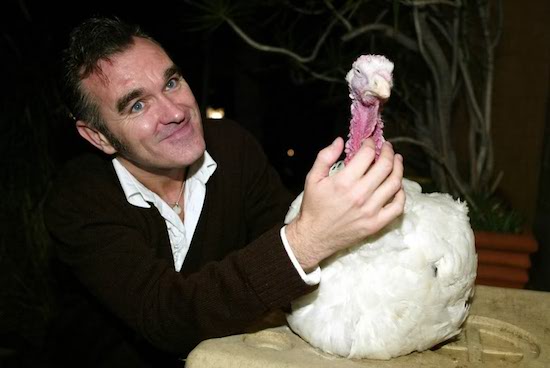A few weeks ago, I was proud and privileged to be among numerous current and former contributors to the New Musical Express asked to send in their votes to help decide the magazine’s (sorry, multi-platform media brand, pop-up restaurant and cultural discourse hub) recently published list of ‘The 500 greatest albums of all time’.
And why not? I’m not one of those tedious prigs who haughtily disapprove of the idea of judging or even ranking musical works’ relative value as if it were tantamount to slapping price tags on renaissance statues. And I don’t really have a beef with the natural human inclination to make lists. I’m sure there’s a cave somewhere on which our ancestors once took it upon themselves to rank "best Buffalo kills I done".
In fact, I’ve always quite liked a list. I seem to remember spending much of my 11th year noting down which bands were "mods", which were "punks", which were "new wave" and which were "rockers", and which football teams they probably supported, based entirely on guesswork. It’s a perfectly healthy human pastime, if perhaps more so for an 11-year-old than a man in his 40s.
It also makes perfect publishing sense for a magazine (sorry, media-neutral entertainment orb, international comment toaster and ever-rotating news sponge) to periodically publish something that will get it talked about beyond the dressing rooms at Leeds Cockpit.
However, the experience did bring home to me just how hard it is to ensure these lists have much real meaning. My own contribution to it involved spending a weekend trying to compile my top 50 albums and singles of all time (from which lists, as you might expect, they compiled the final ‘500 Greatest’ chart.)
I and the rest of the NME alumni were simply told to vote for our ‘favourite’ albums – Ideally a top 50 but really anything we could rustle up by the following Monday.
And herein lies a flaw inherent in all such lists: The results are bound to be slanted towards the choices of the voters who they happen still to have contact details for, which will inevitably be the more recent contributors (Still, having first written for them over 20 years ago, they didn’t do too badly tracking me down).
Inevitably, with the whole thing being a bit last-minute and no-budget, the votes were also those of individuals who could be arsed to sweat over a difficult task in their free time for no financial reward. Welcome to 21st century publishing.
Yet the same problems arise when you get readers or radio listeners to vote on these things. When you see readers’ polls such as Q Readers’ top 100 albums (as compiled in 1998, 2003 and 2006), you’re ultimately looking at the choices of the kind of people who can actually be arsed to fill in a poll form and send it in, which tends to be those who really don’t get out enough, plus members of a Muse fansite who have launched an online campaign to get their sorry arses in there. Do you really want to pay any heed to these people’s recommendations?
Meanwhile, you do wonder: In this age of mass communication, do people still need to be told that It Takes A Nation Of Millions or Is This It? are classic albums that might be worthy of seeking out?
But then I remember scouring second-hand record shops seeking recommendations from the NME‘s top 100 all-time list from 1986. It didn’t do me any harm, apart from puzzling over the appeal of Donald Fagen’s The Nightfly for the next 25 years.
And without making this some sort of Channel 4-screened, laboratory conditions, demographically correct exercise, or a Mercury Awards-style judging-panel bunfight, you’re always going to have the other problems mentioned above. So let’s crack on.
The problems kept coming though: I started questioning the rules of which albums were eligible, and which weren’t. Live albums? Soundtracks, even if they’re composed of a bunch of singles from the title artist and a few others (eg. The Harder They Come)? And what about compilations that aren’t best ofs or studio albums but are seminal collections: Hatful of Hollow was the album that got me into the Smiths, and I prefer the radio session versions of the songs on it – so it remains the first album of theirs I’d listen to, long before the Queen Is Dead (the officially canonised Best Smiths Album, and as it turns out, NME writers’ officially crowned Best Album Of All Time).
"Anything you fancy", came the reply when I asked which would be eligible. And this free and easy approach is far from unprecedented. A quick google unearths other magazines’ ‘greatest’ lists, some of which included Greatest Hits compilations. Immediately, the shadow of Alan Partridge citing his favourite Beatles album as The Best Of The Beatles looms large. But of course most respondents will instinctively not include a lot of these collections, once again influencing the nature of the final list.
Anyway, now we’d got that straight, I had to wonder if we were talking personal favourites, or the albums we think are objectively great works of art? Well, the original email calling for votes did say ‘favourite’ albums. But the title says ‘Greatest’, like some official judgement of indisputable quality.
Which is when you run into what can best be described as "The Sergeant Pepper problem". Now, I would not dispute the received opinion that this Beatles album was a hugely significant work of art in terms of production, ambition, generic diversity, sonic invention and cultural impact. And much of it still sounds pretty tidy. But when I’m scanning the ‘B’ section of my shamelessly alphabeticised CD collection, how often to I pick it out to play? Once every lunar eclipse. Not least because you regularly hear tracks from it everywhere anyway.
Evidently, Rolling Stone‘s respondents weren’t thinking along the same lines when they compiled their updated 2012 list of Top 500 albums, voted by critics and musicians. The mighty Pepper (No.87 in the new NME list) remained entrenched in top spot, like a day-glo carving on Mount ROCKmore. And looking at their 500, when the only album in their top 10 less than 40 years old is London Calling, I think I prefer the NME‘s less critically-correct approach.
But maybe, I thought, now I’m taking part in this kind of exercise, I should feel at least a small weight of history on my shoulders. I can’t risk screwing up here. I mean, I could end up choosing a record of recent vintage that seems worthy of eternal deification now, but which may not seem so special in future.
The final NME list bears that out: Good as it is, if PJ Harvey’s Let England Shake is in the top 10, or even the top 50 the next time a list like this is attempted, I’ll eat my backwards baseball cap. Meanwhile, as I trawled the web for inspiration, I found Q‘s top 100 British albums from 2000. No disrespect to Old Goalkeeper Hands and his friends, but I suspect Stereo MCs’ No.55 spot for Connected might not be repeated it they took the poll again now.
But GOD DAMN IT. That HAS to be the wrong attitude. From this kind of thinking, soulless, canon-centric lists of the same tired old titles (like Rolling Stone‘s) are born. So I concluded that notions of objectively ‘great’ albums could whistle, and I’d make a list from the heart.
But then I started thinking: ‘What exactly is the point of me putting The Rain Parade’s Explosions In The Glass Palace at Number 24 on my list? It would basically be a wasted vote. If a man in a forest of hacks announces that an early 1980s psychedelic revivalist record is his 24th favourite album of all time, and nobody hears him, has he really said it?
It was around this point that the sleazy concept of tactical voting reared its head. Because when you’re deciding your personal list you think, "If I put my least popular choices in the top 10, they might just win enough points to earn them a chance of making the top 500, especially if there’s a chance that a couple of others might give them a mention." So best put If You Want Blood and Imperial Bedroom in the top 10, then, and pampered old Pet Sounds will survive just fine languishing in the 30s, regardless of what I really think.
Which is when my conscience inevitably piped up: What if everyone did that? Well, to paraphrase the faultless philosophy of Yossarian in Catch-22, if everyone did that, then I’d be a damned fool to do anything else. And if everyone voted tactically then we’d probably end up with the same result, because people will just vote for the albums they like best from the canon of accepted classics, and the canon are the ones that are going to be up there anyway, so you’re arguing over which goes where.
Meanwhile, the dark (not in that way) shadow of tokenism also started to loom across the back of my envelope. Had I put enough black artists in there? Women? Non-rock albums? After all, there’s always the chance that your personal top 50 will be made public and you will be outed as a racist, sexist, rockist enemy of music who enjoys The Cardigans’ Long Gone Before Daylight more than any Marvin Gaye album.
So the upshot of all this self-editing was that I put Songs Of Leonard Cohen at Number One (The greatest album of all time? Perhaps not, but certainly my favourite, and I like to think I was at least half-responsible for it crashing into the final chart at number 232. You’re welcome.) and found myself whittling the rest down arbitrarily from a "short" list of about 185. It was 10.30pm on Sunday night, I was increasingly drunk and there were clearly going to be casualties.
Then I remembered: I was also asked to come up with my top 50 singles, for NME‘s Top 500 singles list, coming soon to a newsagent / content pocket / conversation smog near you. Welcome to a whole new planet of impossibility.
I mean, how do you decide which you like more: ‘Holiday In Cambodia’ or ‘I’d Rather Go Blind’? ‘The Sun Ain’t Gonna Shine Any More’ or ‘Rebel Without A Pause’? It’s like comparing a punch with a kiss. Or Tuesday with a piece of toast. And what if I couldn’t remember if they’d even been released as singles, or only came out in the US? Jesus.
There’s only one thing for it: I got drunk, spun the wheel of my iPod a few times and wrote down whatever favourites came up. I got to about 27 and knocked them brutally into some sort of order. And clicked ‘send’.
This, my friends, is how history is made. Until next month, when another list comes out.



